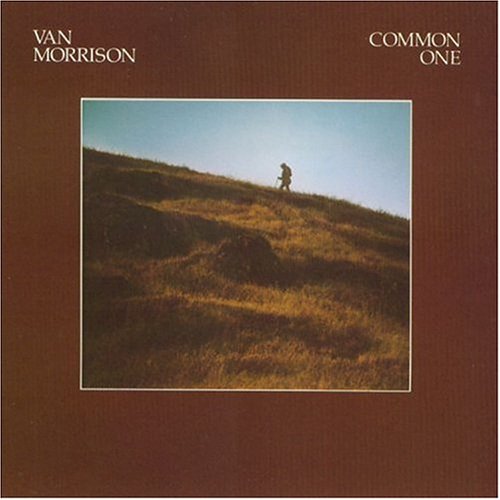
by Paolo Hewitt.
“Won’t you meet me in the country, in the Summertime in England….”
In 1980 Kevin Rowland of Dexys Midnight Runners went searching for the young soul rebels. He went to bars and pubs and cafés, even libraries and old people’s homes, but he could not find them anywhere. He gave up his search, trudged slowly home. Maybe if he had headed for the countryside he might have been in luck. For there, amongst the woods, the rivers, the fields, the hills, the stumbling waterfalls, he might well have come across one of the great soul rebels of our time, Mr Van Morrison reading nature poems by Alfred Austin and dreaming up the music that would create a landmark album in his career.
The Common One is Van Morrison’s twelfth album and I would venture an absolute classic. Certainly, nature has never gripped a songwriter – or indeed Van – so vividly or so tightly. Nearly every song is set in the countryside, relates to the countryside, and is about the countryside.
For Van, nature is many things. On Haunts Of Ancient Peace it is a conduit into the past, a place of great relief, where love and light create the void where words do not exist. On Summertime In England it is where the poets Wordsworth and Coleridge meet and go smoking poetry. It is where his love in red robes rides down by Avalon and there is Van asking to meet her in the long grass, to enter nature as one.
On Satisfied, the album’s out and out r’n’b gem, he opens up the song ‘walking up that mountainside.’ On the sublime Wild Honey, he urges his lover to open her arms and greet him in the early morning light. And on the experimental When Heart Is Open he asks time and time again, ‘hand me down my old great coat, I think I’ll go walking in the woods.’
Sex plays no part in this album. Van’s only desire is to respond to nature’s mystery and utter beauty. This is an album of the soul not an album of desire, a deep and holy music designed to evolve in the way nature does, that is, in brilliant and unexpected ways.
One of the album’s many triumphs is the overriding sense it gives of a band following the music wherever it goes, just as on a long hike into unknown territory you have no idea of the beauty that awaits you just around the bend.
Summertime In England is the perfect example. It begins with a drum beat, establishes a rhythm and an urgency which is simply compelling. The band maintain the groove until quite unexpectedly orchestral strings enter like a late guest at a party and signal the end of phase one.
The band then move into another gear before taking off again. But there is more, a church organ, another change in time and space which allows Van and the band to slowly strip away everything until there is just him standing on a hill asking can you hear the silence, can you hear the silence?
Furthermore, I think this Van’s best sung album. That is because the music demands he use that great vocal talent as an instrument as much as a method of conveying words, images. Often in this work of such great stature Van plays his voice off against Pee Wee Ellis’s brilliant saxophone playing or Mark Isham’s deliberate evocation of the Miles Davis’s trumpet sound, circa Kind Of Blue.
Fittingly, this wonderful album was recorded in a monastery, the Super Bear studios, located in the South of France. Guitarist Mick Cox refers to it’s recording as ‘highly charged’ and states that the rehearsals for the album (which took place in the dying months of 1979) actually yielded better versions than saw the light of day.
Overdubs etc were added in America and it was released in September of 1980. I was 23 years old at the time and not ready for it. I was a City Boy and full of attitude. I would have to wait many years to be ready for this masterpiece.
The same could be said of many others. The NME for example called it, ‘colossally smug and cosmically dull; an interminable, vacuous and drearily egotistical stab at spirituality”.
It was only later on that the great writer Lester Bangs started to say, you know what boys, this album might just well be something very special indeed.
According to the books Van reacted badly to the critical dismissal of this album and you can see his point. To create a work of such magnitude, to create a music that demands the very best in terms of imagination and playing and commitment, and to be dismissed so easily, got to hurt, got to hurt bad.
The Common One reached 68 in the UK charts and disappeared.
Time now to enter the silence and retrieve The Common One.
Paolo Hewitt